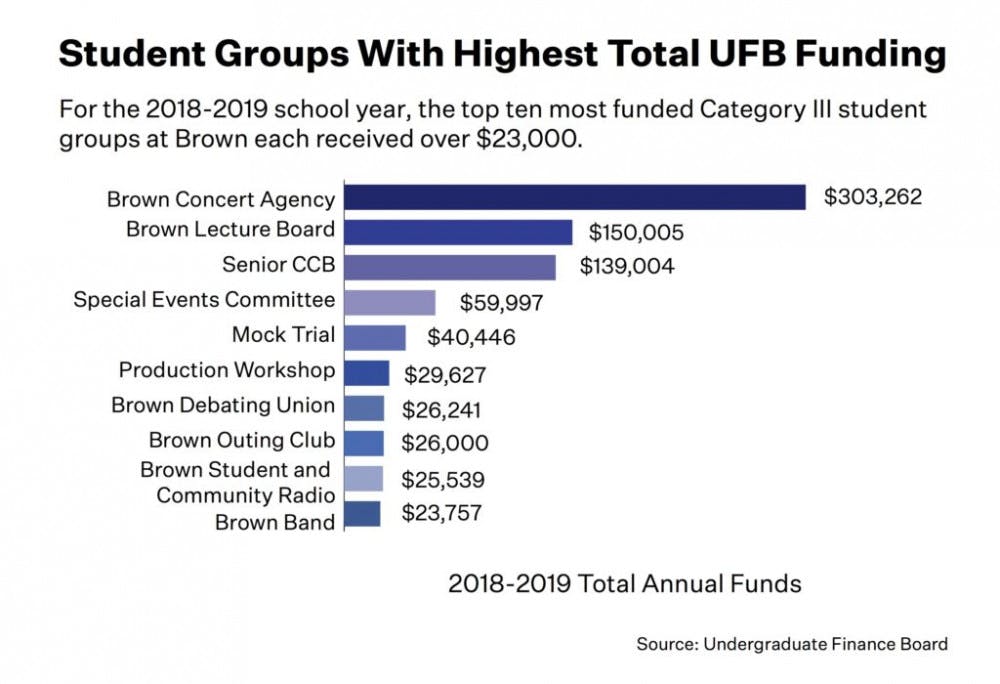Following discussions with highly funded student groups and service-oriented student groups over the past several weeks addressing concerns about equitable funding, the Undergraduate Finance Board passed three new policy changes at their meeting Sunday.
The changes consisted of a constitutional amendment in response to service group criticisms, a concrete transparency requirement for highly funded groups and a new policy allowing the transfer of baseline group funds to other groups funded by UFB.
The board’s constitution was amended to require that funded groups either directly or indirectly benefit the undergraduate student body. Previously, the constitution specified that groups must directly benefit students. “The original rationale for that was that Brown undergraduates pay into this fund, so they’re the ones that are tethered to the money,” said UFB Chair Julian De Georgia ’20.
Will Gomberg ’20, executive director of student group Housing Opportunities for People Everywhere, said that “it sounds like a small change, but it will help service and advocacy groups work to achieve their goals.” He added that although the funds HOPE receives from the board do not directly help students, “the relationships that we build through our work and the community partners that we do the work alongside are really important.”
Service groups expressed dissatisfaction with the narrow scope of the previous wording at a March 1 discussion with UFB. “The service groups made the argument that through being able to use the money to benefit (those outside of the University), that indirectly benefited the students by allowing them to engage in service work that was pretty meaningful and impactful,” De Georgia said.
Additionally, the board passed a new policy increasing transparency requirements for highly funded groups. Groups receiving between $5,000 and $10,000 of funding per year must now provide a three-to-four-sentence summary of how they intend to use the funds allocated to them, while groups receiving more than $10,000 of funding per year must provide a detailed breakdown of their budgets and costs. This information will be available to the public on UFB’s website.
“Hopefully this will enable UFB to do some more analysis and gather more data about how the money is being spent across those groups,” De Georgia added.
UFB also implemented a new policy allowing groups to transfer their baseline funds to other student groups pending approval of individual cases by the board.
The new policy is the direct result of discussions with highly funded groups and service groups, which were held in late February and early March. These followed an open forum held last semester discussing the board’s fall publication of group funding totals, The Herald previously reported. The funding disclosures released in the fall “kicked off a bunch of conversations about how UFB funds service groups, which things have historically been denied for service groups and how we can amend our policies to better support them,” De Georgia said.
Gomberg commended the efficacy of the discussions and subsequent policy changes. “UFB has been wonderful throughout this whole process and really receptive to the feedback from (our conversations), and I’m excited to see that they’ve been willing to make the progress that they have,” he said.
The policy changes, effective immediately, are listed in full on the board’s website. Student groups that are required to disclose funding under the new rules must submit the necessary budget data to UFB by April 15.





